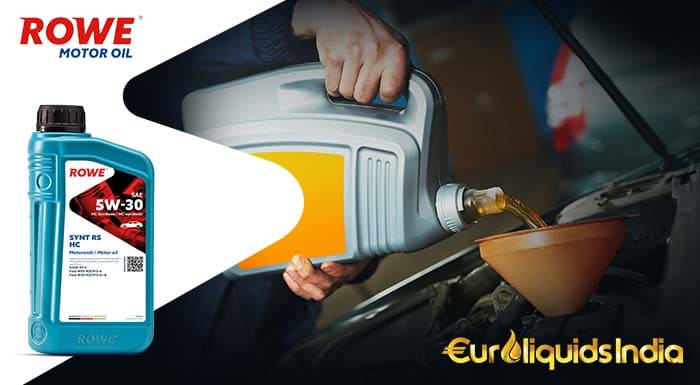Some Facts About Engine Oil You Should Know
 11 Nov 2020
11 Nov 2020
The car engine is an amalgamation of many metallic parts and each part has components that move around and also rub against one another. In order to protect the parts of the engine, engine oil is of crucial importance. However, car owners do not ascribe much thought to the engine oil and frequently renege on regular oil changes.
Here are some lesser-known facts about engine oilWhat is the function of engine oil?Engine oil plays the role of a lubricant in your car’s engine. You have to understand that the engine of your car has a whole lot of metal moving parts. As with all metals and solids, there is friction taking place when the engine is in operation and without engine oil, your car would succumb to friction and heat. During the combustion process, there are many chemical byproducts and engine oil holds these products, ensuring that the function of the engine is at an optimum.
What is the meaning of the alpha-numeric rating?There are two ways by which engine oils are rated. They are the hot viscosity and cold viscosity. These ratings are to be found on the cover of the bottle of engine oil and give consumers an idea of the response of the oil at cold startups. The ratings also denote the thickness of the oil at elevated temperatures. The first number, affixed to ‘W’, happens to be the cold rating. The lower the number on, the lower will be the temperature at which the engine oil will function. The second number on the ratings is the oil viscosity and the greater the number, the thicker the engine oil.
What is the difference between mineral oil and synthetic oil?Essentially speaking a mineral oil is what is mined from the depths of the earth. In contrast to mineral oil, synthetic oil is that which has been distilled in a chemical process and has been further broken down to base molecules. Synthetic oils have the ability to be rebuilt chemically and the constituent molecules can offer better protection than mineral oil. Economically speaking, mineral oils are cheaper but having impurities, which means that they offer lesser lubrication than synthetic oils.
What are the chemical properties of synthetic oils?If we consider fully synthetic oils, they are engineered to provide superior anti-wear, anti-corrosion, and anti-oxidant properties. After the base oil has been distilled, chemists at the labs add phosphorous, zinc, and sulfur molecules in order to build up the synthetic oil. The best engine oil in India is synthetic oil.
Friction is reduced by the addition of metals to oilThis may seem to counterproductive but many engine oils, the synthetic ones have titanium particles added to it. This is because after the engine is turned off, the oil leaves the engine and drains into the pan. If there is titanium added to the oil, it will bond to the metal parts of the engine giving it a degree of protection the next time the engine is started.
The best engine oil for cars in India is available from EUROLIQUIDS, the oil is of superior quality, guaranteeing enhanced performance, and high mileage at all times.